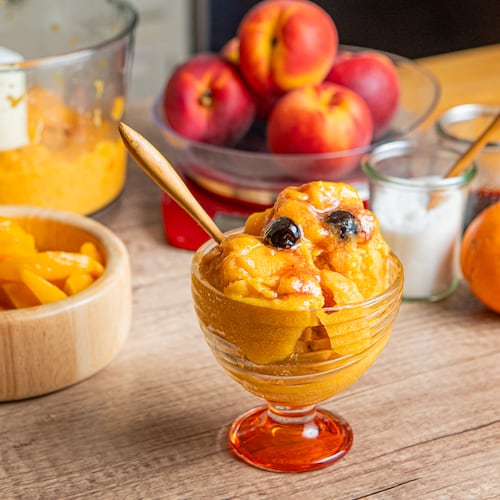Q: Recipes for homemade mayonnaise say you should use it within three days. I make my own and keep it as long as store-bought mayonnaise, sometimes for six weeks. What am I risking?
A: You are risking food-borne illness. Commercial mayonnaises are made with ingredients that have a specific level of acidity. That inhibits the growth of bacteria, keeping the mayonnaise safe.
Homemade mayonnaise doesn’t keep as long for several reasons. You probably used fresh lemon juice, which may be lower or higher in acidity than bottled lemon juice. There may not be enough to inhibit bacterial growth.
Next, you handled all the ingredients - the eggs when you cracked them, the lemon when you squeezed it, the mayonnaise when you moved it to a container. You could have introduced a slight amount of bacteria. Given enough time and exposure to higher temperatures, that slight amount will have time to grow into a lot.
Finally, you’re taking the mayonnaise in and out of the refrigerator without tracking how long it’s been at room temperature. The two-hour rule, the time that food can be between 40 and 140 degrees before bacteria begins to grow, is cumulative. Every time you take it out of the refrigerator while you use it, you’re adding to the amount of time it has been exposed, giving bacteria plenty of time to multiply.
Q: Several times recently, I've seen the word "nage" on menus. I've looked through all my cookbooks and I can't find a definition. What's a nage?
A: Sometimes it seems like there's a secret memo circulated to chefs for everyone to start using a new word or ingredient. Nage (usually pronounced "nah-zh," not "nay-zh") does seem to have become a popular term lately.
The classic definition of nage is a stock used to cook shellfish, such as court bouillon. But it also refers to the technique of simmering something gently in a flavorful broth. In French, “a la nage” means “in the swim.” But some chefs have been getting creative with the term. Some now refer to a nage as sauce made from whisking butter into a little wine-enriched cooking stock, even into pasta-cooking water. Others use it to mean vegetables poached in stock and wine.
At one event recently, I saw a chef refer to a marshmallow-based sauce over sweet potatoes as a nage. Nah, that might be going too far.
About the Author
The Latest
Featured

